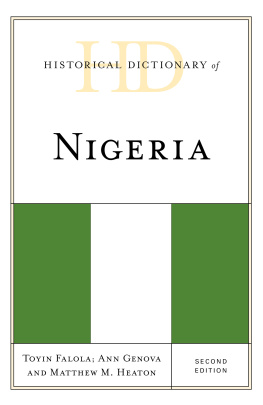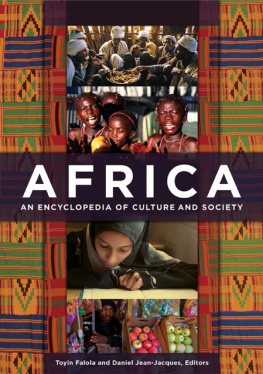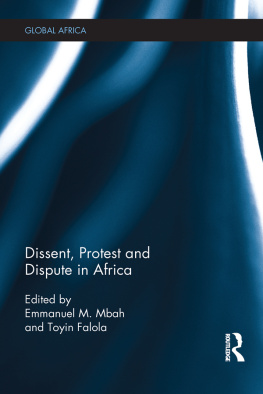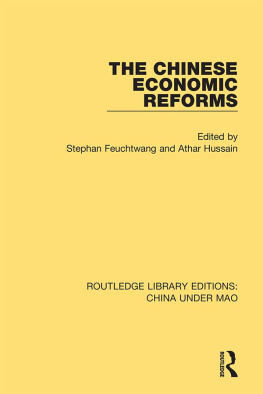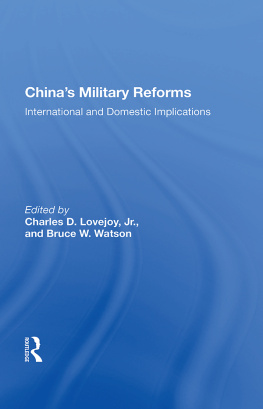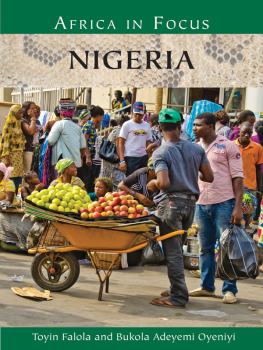2004 by The Kent State University Press, Kent, Ohio 44242
ALL RIGHTS RESERVED
Library of Congress Catalog Card Number 2004010975
ISBN 0-87338-801-1
Manufactured in the United States of America
LIBRARY OF CONGRESS CATALOGING-IN-PUBLICATION DATA
Falola, Toyin.
Economic reforms and modernization in Nigeria, 1945-1965 / Toyin Falola.
p. cm.
Includes bibliographical references and index.
ISBN 0-87338-801-1 (hardcover : alk. paper)
1. NigeriaEconomic conditionsTo 1960. 2. NigeriaEconomic policy. I. title.
HC1055.F355 2004
330.966903dc22
2004010975
British Library Cataloging-in-Publication data are available.
13 12 11 10 09 5 4 3 2
Preface and
Acknowledgments
This is my second book on the period covering the last years of colonial rule, a successor to Development Planning and Decolonization in Nigeria. After 1940 the Nigerian economy and politics were transformed so rapidly that the country began to look different in many ways than it had looked in its previous history. The first generation members of the political class inherited power in the 1950s, and the agenda of an emerging nation-state turned primarily to the issue of development. The country became obsessed with the transfer of power from the British to the Nigerians, and what the new power-holders would do with this opportunity. The country entered its most crucial stage thus far in its so-called march toward modernization. This was an age of ideas and actions, all focused toward achieving rapid changes in the economy. The colonial administration, previously uncommitted to development, had to change course after 1940, in part driven by the fear of losing its colony, and in part forced out of its lethargy by nationalist forces. If before 1940 progress had been slow, it was a different story thereafter, as the country began to witness an expansion in its infrastructure, schools, health services, and industries. It is both the process and the outcome of the major economic changes after 1940 that form the subject of this book.
However, this book is different in two ways from its predecessor, Development Planning and Decolonization in Nigeria. Unlike the previous book, it deliberately seeks to reach a larger audience by combining synthesis with new research findings on various issues. The presentation is very much geared to general readers, while specialists will find newness in interpretations and data that is being used for the first time. This book deliberately provides additional analysis on politics in order to capture the general events of the period and to transcend the narrowness imposed by a strictly economic analysis. Politics determined in part how the major economic objectives of the period were arrived at. In addition, politics provided the enabling forces to initiate and implement political programs. During the period covered by this book, politics also determined the management of issues, as politicians were at that time among the major economic planners.
The book covers one of the most important phases in the history of modern Nigeria. Indeed, many regard the period as the golden era in the development of regional and national consciousness. Driven by the need to be free of British rule, many Nigerians, especially the elite, were proud of themselves. Nationalism emboldened them to think big about power, development, and individual achievements and self-esteem. The most commonly used word was change. Many more people went to school, in the hope of attaining social mobility. The first university in the country, the University of Ibadan, was established in 1948. Those who could not gain admission to Ibadan sought opportunities abroad, traveling to Britain, the mother country, also to the United States and other places. The regional governments in the 1950s made education their primary goal and contributed to the massive expansion of both primary and secondary schools. The farmers, craftsmen, market women, and others who did not go to school were also conditioned to dream of a great future: the inheritors of power promised to transform their lives within a generation. Most people expected progress, variously defined to mean earning more money, living in better houses, wearing good clothes, eating better food, and being able to send children to school. In short, independence was associated with the banishment of poverty.
The book captures the great changes of the era, and it pushes a little bit further into the period dominated by oil, if only to sketch the trends and the major issues. Several statistical tables are provided on the post-independence economy to indicate the nature of changes after independence. Two themes loom large in the study, one peripherally and the other my major concern. My major concern is with the economy, providing an analysis of the growth and characteristics of the era under consideration. I focus on the broad trends in the economy, as well as providing original accounts of the development agencies created during the period. Considerations of development plans and agencies ultimately revolve around the issues of economic growth. But, as the analysis indicates growth in Gross Domestic Product (GDP), per capita income, capital formation, aggregate savings and productivity, and also reviews the performance of the leading sectors (notably agriculture and industries), it can reveal profound changes which may nevertheless leave out the most important consideration: the betterment of peoples lives. I have included aspects of development as part of the larger context of economic history. Thus, issues of standard of living and capacity of government to provide more amenities to the ever-growing population are included in my analysis. On the one hand, we see an economy showing impressive evidence of economic growth, but, on the other hand, we see that the capacity for Nigerians to improve their living standard was not always enhanced.
The second theme, albeit analyzed in the context in a single chapter, is that of politics, which involved a process of transfer of power from the British to Nigerians and the mismanagement of this great opportunity by first generation members of the political class. examines the formation of political parties, the various constitutions of the era, the competition for election, and the entrenchment of ethnicity that ultimately led to the civil war in 1967. All these political issues impacted upon the economic reforms and programs discussed in this book.
Both the economic and the political issues reveal the reforms undertaken in the last years of colonial rule. In some instances, one influenced the other, as in the process to regionalize the awarding of loans and the execution of development programs, or as in the political rivalry over the revenue allocation formula. Whereas a single development plan was formulated for the country in 1946, the political reforms thereafter created the need for various regional development plans in the 1950s. As each region tried to assert itself and to ensure that constitutional rights were fulfilled in the early years, the formulation of plans became a means of self-assertion. It did not matter if there were overlaps or duplications, and it was not necessary for a region to relate its goals to any national economic target. To take another example, the political instability of the First Republic also impacted upon economic performance, which slowed down considerably. Yet in some other instances, there was no such organic linkage. Certainly, politics was considered more important than the economy, especially as the members of the political class were anxious to inherit power from the British. The point of unity between politics and economy, as I point out in , was the attempt to reform society by creating new institutions and attempting to move the economy and politics forward. The pace in both was fast.




